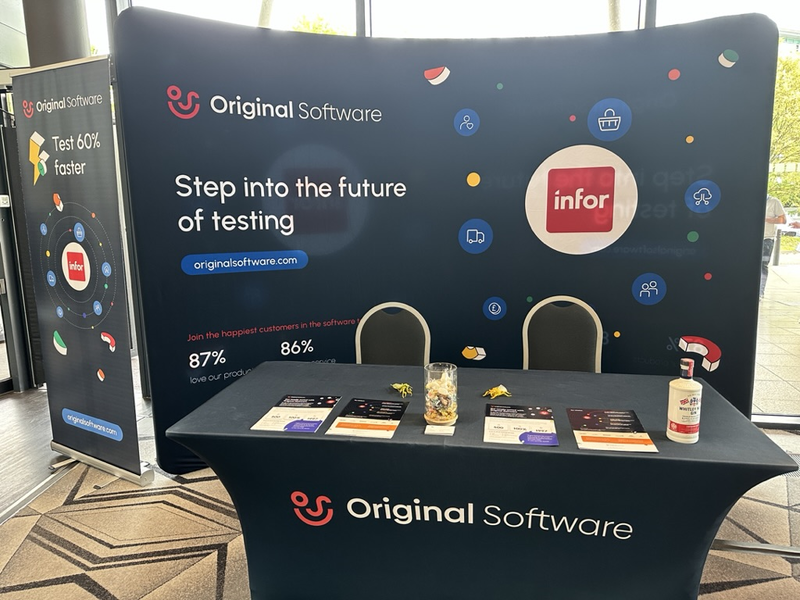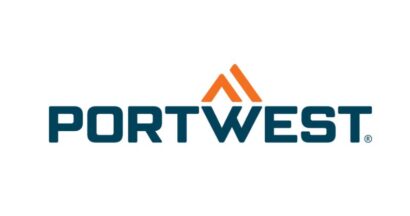
It’s such a thrill getting out and about and talking to people, isn’t it? We were at the M3 User Association (M3UA) conference in Manchester at the end of May, and we had a great time talking to Infor M3 users from a wide variety of industries about how they go about testing their Infor applications and processes, both on an ongoing basis and as part of an Infor Cloudsuite upgrade.
We also got to see the keynote given by Infor – and it sparked a number of thoughts in our heads that I wanted to share in this article. Because although the future of Infor is exciting, and organizations stand to gain so much from what’s in store, there are some important bases that organizations need to make sure they have covered when it comes to Infor testing if they want to ensure the success of their Infor platform (and business!)
What did Infor say?

The biggest message from the keynote at the conference was that Infor Cloudsuite ERP is the future. They really zoned in on the benefits of Cloudsuite – and cloud computing in general – for driving innovation and being the centerpiece of digital transformation projects.
And, of course, they’re absolutely right. Cloud apps and platforms have become common in businesses around the world. They’re great because of their flexibility, their simplicity from a business management perspective, their cost-effectiveness, and because they often give you access to great tools and functionality far more easily than if you were building an on-premise IT solution. It was plain from the keynote that Infor is really hoping users will start upgrading to Cloudsuite and so achieve significant ROI on their ERP investment.
Buuuuuut…
Why is there always a but?

One of the things that makes cloud platforms great is that they are evergreen. A regular schedule of updates ensures that your users get the best features and functionality and that you can be confident your applications are secure. And though every new update Infor releases will, of course, be stable and functional, they could have unforeseen effects on your business processes. If those effects are significant enough, they could disrupt your processes and bring your business grinding to a halt. Don’t believe it could never happen; everyone from airlines to health services to banks has fallen victim to IT issues that cost them millions in lost business.
And it’s not just Infor updates that could pose a challenge. Your business likely uses a lot of other applications alongside Infor; how will an Infor update affect how it works with your third-party applications? How might the updates to those applications affect how they work with Infor? Often, it’ll be impossible to know until the update has been released.
So, before you press the big green button and kick off your migration project, you need to ask yourself the question: will you have the capacity to properly test every update that Infor releases once you’re in Cloudsuite?
Chances are, the answer to that question (right now) is no.
There’s nothing wrong with my testing capabilities… is there?

You may look at how your organization does Infor testing right now and see no problems. That’s great, but the problem isn’t what you need to test now – it’s how the testing workload will change as you upgrade from Infor M3 (or any on-premise Infor platform) to Cloudsuite.
The migration itself will create a massive amount of work for your testing team. They’ll need to document every process that will need testing after the migration, and once the migration has happened, all those processes will need to be validated through user acceptance testing (UAT) – which many businesses report is a slow, manual, and error-prone process.
Once the migration is finished (and all the teething problems have been ironed out), the testing team will need to adapt to the increased frequency of updates that require testing. At Original Software, we’ve been helping organizations improve how they test for 25 years; if we’ve learned one thing, it’s that most businesses’ testing processes will buckle under the pressure. It’s like trying to compete in the Tour de France using a bike you bought from Amazon; it just wasn’t built for the work and can’t keep up.
UAT is a particular area where we know organizations struggle because most of them try to manage it using spreadsheets and emails. As the volume of tests, feedback, and queries from users (and test managers who don’t understand the feedback users have given) grows, more and more things get missed, and the less confidence you have that your software is bug-free.
Oh, no. What can I do?

If your organization can adopt a more mature approach to Infor testing, then you can unlock all the benefits of Cloudsuite without having to worry about business-breaking bugs tripping you up in the future. Based on our experience supporting organizations upgrading their ERP from on-premise to the cloud, we have the following tips:
- Manage all your testing centrally. Do your best to reduce reliance on emails, spreadsheets, and memories of the conversation you had at someone’s desk or on Teams half an hour ago.
- Make user feedback easier to give, easier to understand, and easier for devs to act on. Many of the delays that happen in testing (especially UAT) come from unclear feedback, which requires more of a business user’s time to get to the bottom of (or the feedback is ignored altogether, raising the risk of issues slipping into production).
- Try and automate as much testing as possible, making it easier to quickly test updates with confidence.
- Document processes so you can build a library of tests that makes sure you’ve tested every process you need to in the new environment.
Smooth your cloud journey with grown-up testing tools.

We’re really excited that Infor is encouraging customers to embrace Cloudsuite. It’s a powerful platform, and the benefits of the cloud are all there for the taking. Hopefully, this article has highlighted that to make that journey the best one possible, you need to, at the very least, evaluate your testing processes and quite possibly overhaul them to keep pace with the volume of updates Infor is likely to release.
It shouldn’t come as any surprise at this point to know that here at Original Software, we help companies that use Infor to test their systems after every update. To learn more about how we can help, click here.











